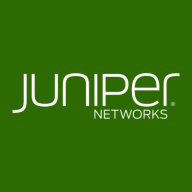


Forcepoint Next Generation Firewall and Juniper vSRX compete in the network security category. While both have strengths, Juniper vSRX is favored for its comprehensive features despite its higher pricing.
Features: Forcepoint Next Generation Firewall is praised for its intuitive security tools, user-specific configurations, and ease of use. Juniper vSRX is commended for its virtualized architecture, robust threat detection, and adaptability to varied environments.
Room for Improvement: Forcepoint users suggest enhanced reporting capabilities, scalability options, and advanced functionality. Juniper users recommend improving the initial configuration process, integration with third-party tools, and setup complexity.
Ease of Deployment and Customer Service: Forcepoint Next Generation Firewall is noted for straightforward deployment and responsive customer service. Juniper vSRX users find deployment more challenging but value the supporting documentation provided.
Pricing and ROI: Forcepoint Next Generation Firewall users consider the setup cost reasonable but seek a clearer ROI metric. Juniper vSRX's higher cost is justified by its advanced features, with users acknowledging the long-term ROI.
Clients are now comfortable and not wasting productive hours on IT support.
The automation part is giving us a cost benefit and speed; we can react faster.
It's a very useful tool to mitigate and protect your enterprise.
Cybersecurity ROI could be $1 or $100 million, depending on the risk of data behind it.
It is easy and offers different solutions for each solution type with small, mid, and large scale options available.
I have seen a return on investment with time saved and also fewer employees needed.
The quick resolution of issues with Fortinet FortiGate is due to the support of the company and the fact that the equipment is easy to work with.
I would rate the technical support for Fortinet FortiGate a ten out of ten.
As a solution provider, when I encounter problems, I connect directly with Fortinet support, and they provide solutions within a very short time.
Unlike Fortinet where you can escalate an issue and quickly get responses from the development team, Forcepoint's process seems slow and challenging.
TAC engineers are very experienced and troubleshoot issues within the expected timeframe with no problems.
Technical support is sometimes slow to respond, and it takes longer to resolve issues.
I would rate their support a ten out of ten.
They scale up really well from smaller models like the FortiGate 40 and 50 to bigger sites with the FortiGate 100 for more throughput - up to enterprise datacenters.
The variation comes in terms of the interfaces and throughputs, but from a security perspective, you get the same benefit, irrespective of whether you have an entry-level unit or an enterprise.
We determine sizing based on multiple factors: number of users, available links, traffic types, server count, services in use, and whether services will be published.
There are restrictions in the firewall manager and limitations when deploying for cloud environments.
Forcepoint Next Generation Firewall is scalable and can grow with my organization's needs.
Juniper vSRX is a highly scalable solution, and I would rate its scalability a nine out of ten.
We're experiencing 99.999% availability consistently.
I would rate the stability of Fortinet FortiGate a ten out of ten.
Currently, we are experiencing a general outage of one of the main internet service providers of the Dominican Republic, and we have not been impacted in our operations because with SD-WAN, we have another internet service provider and we are working with the second WAN connection without any disruption.
It has many freezes for no reason.
When considering Sophos XG, which we also use, the logging and reporting functionality is notably more efficient.
These sessions should be around five to ten minutes long, allowing users and partners to quickly grasp the information without disrupting their daily tasks.
The solution should be able to implement machine learning and analytics of all the logs for threat detection and protection.
Fast response and efficient handling of issues, similar to how Fortinet responds, would be great.
AI improvements could be beneficial, as having AI capabilities has become an important checkmark feature.
I recommend that additional features be included in a single license to avoid the need for extra licensing costs.
I would suggest improving the pricing, particularly the licensing model.
Last year, I renewed the support for three years, which can sometimes be expensive but depends on the security benefits and how it helps us.
It offers cost savings as it is generally cheaper than the competition.
It is about 20% cheaper.
The costs can be high since additional features require separate licenses.
In terms of pricing, I would place Forcepoint in the middle when compared to other firewalls like Fortinet and Palo Alto.
The pricing is competitive, being neither the most expensive nor the cheapest option.
These features help reduce our downtime, manage the ISPs, and deploy SLAs for all the website traffic.
The most valuable feature of FortiGate is FortiView which provides proactive monitoring.
We got a firewall and gave an SSL VPN to my client to connect to their servers, after which, such kind of activities involving ransomware attacks stopped.
Forcepoint Next Generation Firewall has impacted my organization positively by making it very easy to work and offering a more competitive price compared to other vendors.
Forcepoint Next Generation Firewall has positively impacted my organization by providing always-on perimeter security.
With Forcepoint, this process is simplified compared to others like Fortinet.
These features are crucial for our network security.
| Product | Market Share (%) |
|---|---|
| Fortinet FortiGate | 18.7% |
| Forcepoint Next Generation Firewall | 0.6% |
| Juniper vSRX | 0.6% |
| Other | 80.1% |


| Company Size | Count |
|---|---|
| Small Business | 357 |
| Midsize Enterprise | 132 |
| Large Enterprise | 188 |
| Company Size | Count |
|---|---|
| Small Business | 27 |
| Midsize Enterprise | 10 |
| Large Enterprise | 11 |
| Company Size | Count |
|---|---|
| Small Business | 23 |
| Midsize Enterprise | 8 |
| Large Enterprise | 9 |
Fortinet FortiGate is a versatile network security tool offering features like VPN, firewall, web filtering, intrusion prevention, and scalability. It is known for its performance and integration with other Fortinet products, making it a preferred choice for robust cybersecurity.
Fortinet FortiGate stands out as a comprehensive cybersecurity solution with strong performance and ease of configuration. It delivers unified threat management, integrating features such as dynamic routing, SD-WAN support, and centralized management. Despite its strengths, improvements in the web interface's stability, pricing structures, and reporting capabilities are needed. Users seek better integration with third-party tools and automation advancements to enhance the experience further. These enhancements, alongside improvements in bandwidth management and the reduction of licensing costs, are points of interest for users looking to capitalize on FortiGate's extensive capabilities.
What are Fortinet FortiGate's key features?Fortinet FortiGate is widely implemented across industries as a primary firewall system for securing internet gateways and safeguarding data centers. It supports businesses in achieving SD-WAN integration and enhances cybersecurity by providing essential features like antivirus, web filtering, and application control. Enterprises utilize FortiGate for securing remote connections and ensuring compliance with security standards, making it adaptable for different network sizes and industries.
Forcepoint Next Generation Firewall is a versatile and comprehensive solution for perimeter security, offering features such as SD-WAN, IPS, VPN, and cloud or on-premises subscription keys. It is preferred by many clients over Cisco and is used for obligation redundancy, VPN access, and as the main point of security in infrastructure.
The product is praised for its simplicity, flexibility, complete feature set, scalability, and central management capabilities. Other valuable features include IPS, firewall, sandbox, application control, filtering, security management center, connectivity, and integration capabilities.
Juniper vSRX is a virtualized security platform that provides advanced threat protection for virtualized and cloud environments. It offers a comprehensive set of security features, including firewall, VPN, intrusion prevention system (IPS), and unified threat management (UTM).
With its scalable architecture, the vSRX can be easily deployed and managed across multiple virtual machines, making it ideal for organizations with dynamic and distributed networks. It also supports high-performance data processing, ensuring minimal impact on network performance.
vSRX is designed to integrate seamlessly with Juniper's broader security ecosystem, enabling centralized management and visibility across the entire network.
We monitor all Firewalls reviews to prevent fraudulent reviews and keep review quality high. We do not post reviews by company employees or direct competitors. We validate each review for authenticity via cross-reference with LinkedIn, and personal follow-up with the reviewer when necessary.